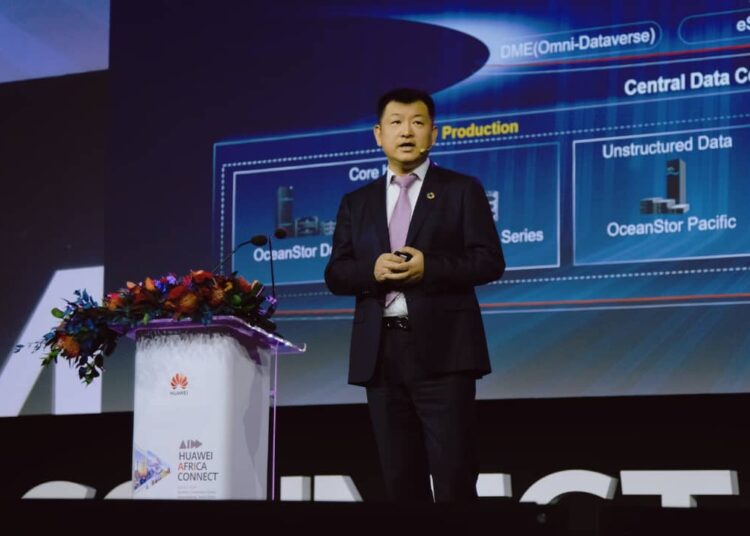Huawei has reaffirmed its dedication to revolutionising data storage and addressing customer needs in the data awakening era.
According to the firm, this was its commitment to building cutting-edge AI-ready data infrastructure that provides greater value to customers, a move poised to transform the data storage landscape and solidify Huawei’s position as a leader in the industry.
Presenting the company’s latest vision at Huawei Africa Connect 2024, in a session titled, “Redefining Data Storage in the Data Awakening Era”, Vice President of Huawei and President of Huawei Data Storage Product Line, Dr. Peter Zhou, said, “AI will disrupt traditional data storage, by improving performance, reliability, and data paradigms. AI will also have an impact on scalability, sustainability, and data fabric.”
In the data awakening era, he added, Huawei will redefine data storage through leading innovation in six dimensions, namely ultra performance, data resilience, new data paradigm, scalability, sustainability and data fabric.
The six dimensions guide the philosophy behind the recent launch of the high-performance OceanStor A800, which is a powerful addition to Huawei OceanStor’s A series storage models.
Tailored for AI applications, OceanStor A800 can increase AI cluster utilisation by 30 per cent. When it comes to performance, it delivers high bandwidth and IOPS, which are four and eight times better than its peer vendors. Regarding scalability, OceanStor A800 supports scaling out to EB-level capacity with up to 512 controllers, as well as scaling up to a maximum of 4,096 computing cards. It also conserves space and energy, by achieving outstanding storage density of 1 PB/U and energy efficiency of 0.7 watt/TB.
It provides a new data paradigm with vector index, tensor data, and RAG. In terms of data resilience, the accuracy of ransomware detection is improved from 99.9 per cent to 99.99 per cent. In addition, the data fabric capability facilitates data asset management.
Storage media innovations are also driving sustainable development. Huawei’s newly released high-capacity SSDs provide 10 times more capacity with the same disk size, which further reduces a data centre’s energy consumption. With 128 TB capacity per disk, the new SSDs consume 88 per cent less storage space and 92 per cent less energy than the peer vendor’s SSDs when storing one PB of data.
“To be AI-ready, enterprises must get data-ready. The Omni-Dataverse global file system built in the DME makes enterprise data assets visible, manageable, and mobile across regions, thereby building a solid AI data lake storage foundation for enterprises,” he added.





